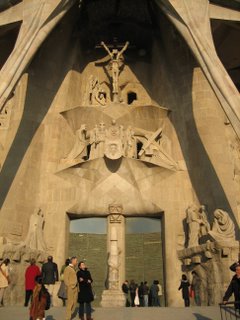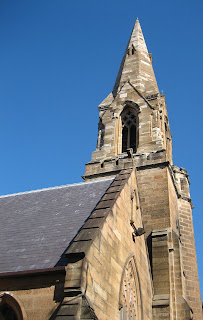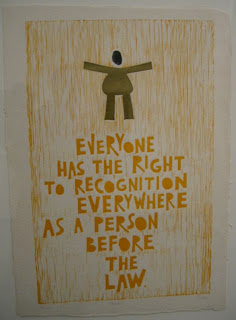Does God have a name? Jesus Christ is Lord!
In my last post, I briefly discussed how in the Old Testament God revealed his name: YHWH. Yet out of respect, his people chose to call upon this one as Adonai, 'my Lord'.
Then came Al the Greek,* also known as Al the Great. And so people everywhere** started speaking Greek, including many of the scattered Jews (and not a few of the unscattered ones too). Before too long the Hebrew Scriptures (what Christians call the Old Testament) were translated into Greek. The translators, however, faced the issue of what to do with the divine name. Would they transliterate YHWH directly into Greek or continue Hebrew piety by using the Greek for 'lord' (kurios)? Not having the same symbolic resources as Hebrew (which could encode two words at once: one in the consonants, and another in the vowels), they opted for the latter and so rendered the name of God by using the title kurios.
*Yes, I know he was from Macedonia; save the hate-mail.
**Yes, I know - not everywhere.
However,
kurios like
adonai was a title, not a name. And so others were also called
kurios: like Caesar. Indeed, even Israel's king (when she had had one), was called
'lord'.
Thus, it is no surprise that when Jesus comes and is recognised as Israel's Messiah, this title (
kurios) is applied to him. He is king of Israel and so the common use of
'Lord Jesus' throughout the New Testament reflects this.
However, far more common than 'Lord Jesus' is
'Lord Jesus Christ' or
'Christ Jesus our Lord' or
'Jesus Christ our Lord'. Remember, 'Christ' is also a title, not simply Jesus' surname. Could 'Lord' then be implying more than simply 'Messiah'? Perhaps it is simply a redundant tautology, a way of emphasising Jesus' royalty as Son of David and true king of Israel? Possibly, but I suspect not.
To support this hunch, let's take a brief look at Isaiah 45.20-23:
Assemble yourselves and come together,
draw near, you survivors of the nations!
They have no knowledge--
those who carry about theur wooden idols,
and keep on praying to a god that cannot save.
Declare and present your case;
let them take counsel together!
Who told this long ago?
Who declared it of old?
Was it not I, the LORD? [Was it not I, YHWH?]
There is no other god besides me,
a righteous God and a Saviour;
there is no one besides me.
Turn to me and be saved,
all the ends of the earth!
For I am God, and there is no other.
By myself I have sworn,
from my mouth has gone forth in righteousness
a word that shall not return:
"To me every knee shall bow,
every tongue shall swear."
This is a classic statement of Jewish monotheism, in a section sounding a ringing critique of idolatry. There is Israel's God YHWH (=the LORD), and then there are pretenders to divinity, false alternatives. Now let's compare that with one of the most striking passages of the New Testament:
Christ Jesus, because he was in the form of God,
did not regard equality with God
as something to be exploited,
but emptied himself,
taking the form of a slave,
being born in human likeness.
And being found in human form,
he humbled himself
and became obedient to the point of death
-- even death on a cross.
Therefore God also highly exalted him
and gave him the name
that is above every name,
so that at the name of Jesus
every knee should bend,
in heaven and on earth and under the earth,
and every tongue should confess
that Jesus Christ is Lord,
to the glory of God the Father.
Notice that what was God's exclusive right, shared with no other, is here given to Jesus. Jesus is included in the identity of the one God of Israel. He stands with Israel's God over against all created idols. And at precisely this point, it is the confession of Jesus Christ as
kurios that is the clincher. Jesus is not simply lord as Messiah, though he is that. He is Lord, the one Lord, receiving the title reserved for YHWH alone.

There is so much more that could be said coming out of this passage (and
others like it). And so much more to be said about the identity of Jesus, about the name of God. But for the moment, we'll pause there, noticing that the summary confession of the gospel -
Jesus Christ is Lord - answers not only the question "Who is Jesus?" but leads us directly into the further question, "So who then is God?"
PS I realise many of these thoughts are indebted to Bauckham, but I also owe their recent stimulation to some recent talks from Rowan Kemp at Refresh.



















